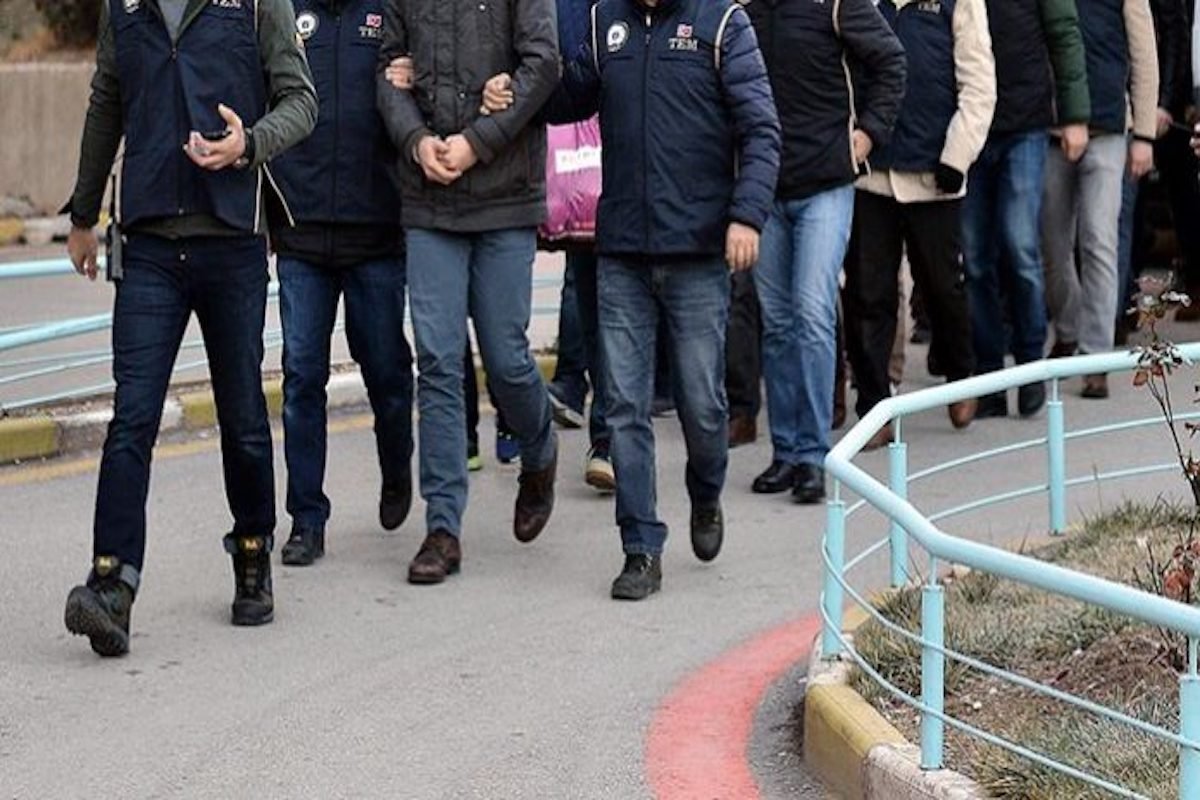The Turkish government has detained 967 people across Turkey over the past week (May 7-May 14) as part of its massive post-coup witch hunt targeting alleged members of the Gülen movement, according to a written statement released by the Interior Ministry on Monday.
Police detained a total of 10,472 people over alleged links to the movement in the first four months of 2018.
Meanwhile, 46 people were detained by police in 15 provinces on Monday over their alleged links to the Gülen movement. The detentions came after the Ankara Chief Public Prosecutor’s Office issued warrants for 86 people, including for 25 active duty colonels and 47 colonels who had been dismissed from the Turkish Land Forces Command.
Other detention warrants were issued for 14 people including two suspended teachers and 12 students and alumni of Abant İzzet Baysal University on Monday in the Black Sea province of Bolu over their alleged links to the Gülen movement. The Bolu Chief Public Prosecutor’s Office issued the warrants after these people were accused of using the ByLock mobile phone messaging application.
Turkish authorities believe ByLock is a communication tool among alleged followers of the Gülen movement. Tens of thousands of people, including civil servants, police officers, soldiers, businessmen and even housewives, have either been dismissed or arrested for using ByLock since the failed coup attempt on July 15, 2016.
Also on Monday, 21 people, including 19 military officers, were detained in 18 provinces across Turkey and northern Cyprus in an Ağrı-based investigation targeting alleged members of the Gülen movement. The detainees including three majors and two captains. Among the detainees is Silivri district gendarmerie commander Col. Mustafa Yoldaş. The detentions came after the issuance of warrants by the Ağrı Chief Public Prosecutor’s Office for 23 military personnel.
In a Tokat-based investigation 15 military personnel were detained on Monday in Ankara, Çanakkale, Diyarbakır, Giresun, İstanbul, Kahramanmaraş, Kırklareli, Kocaeli, Mersin, Samsun and Tokat provinces over their alleged links to the Gülen movement.
Moreover, prosecutors in İstanbul demanded aggravated life sentences on Monday for various cases linked to the night of a 2016 controversial coup attempt.
Prosecutor Eray Akkavak sought aggravated life sentences for 52 military personnel accused of attempting to occupy a municipal building that he said left 14 people dead and 152 wounded.
In the ongoing trial at the 26th İstanbul High Criminal Court, the suspects face several charges including allegedly attempting to “overthrow the government and the constitutional order” and “attempting to overthrow the parliament.”
Another prosecutor at İstanbul’s 23rd High Criminal Court sought aggravated life sentences for 36 military members allegedly linked to events that took place on the night of July 15, 2016. The suspects were accused of attempting to abolish the constitutional order.
Eleven people were injured when pro-coup soldiers tried to take control of İstanbul’s Kartal Bridge and Samandıra toll booth, the indictment against the former officers states.
Separately, the case continued for suspects who were allegedly involved in an attempt to occupy İstanbul police headquarters as well as violence on the city’s Esenler Birlik Bridge, where five people were killed. The prosecutor seeks aggravated life sentences for 21 suspects.
Turkey survived a controversial military coup attempt on July 15, 2016 that killed 249 people. Immediately after the putsch, the Justice and Development Party (AKP) government along with President Recep Tayyip Erdoğan pinned the blame on the Gülen movement.
Fethullah Gülen, who inspired the movement, strongly denied having any role in the failed coup and called for an international investigation into it, but President Erdoğan — calling the coup attempt “a gift from God” — and the government initiated a widespread purge aimed at cleansing sympathizers of the movement from within state institutions, dehumanizing its popular figures and putting them in custody.
Turkey has suspended or dismissed more than 150,000 judges, teachers, police and civil servants since July 15. On December 13, 2017 the Justice Ministry announced that 169,013 people have been the subject of legal proceedings on coup charges since the failed coup.
Turkish Interior Minister Süleyman Soylu announced on April 18, 2018 that the Turkish government had jailed 77,081 people between July 15, 2016 and April 11, 2018 over alleged links to the Gülen movement.















